Ask any plumber (or contractor for that matter) about their worst nightmare, and tool theft will likely come up in the discussion. It’s not just the monetary value of the tools themselves – some of which will be ensured and can always be replaced – but the immediate impact on ability to work and the Read more
Whats New

Ask any plumber (or contractor for that matter) about their worst nightmare, and tool theft will likely come up in the discussion. It’s not just the monetary value of the tools themselves – some of which will be ensured and can always be replaced – but the immediate impact on ability to work and the frustration that your general flow of managing jobs is ruined which makes this experience feel utterly awful for most.
A stolen van full of equipment can mean weeks of lost income, frustrated customers, and the exhausting process of replacing specialized tools that took years to accumulate. Some may even hold sentimental value to you, and no, that’s not a silly way to think about the tools you’ve used for years and have put a roof over your head and fed your children, sometimes even for decades.
To be anecdotal, the problem seems to be getting worse too. With tools becoming more expensive and sophisticated, it seems like they’re becoming more and more attractive targets for theft. Almost every plumber and other trades worker you will meet has a story about arriving at their van one morning to find it emptied overnight, and if not, they likely know someone else who does. Some have even experienced theft while on the job site itself.
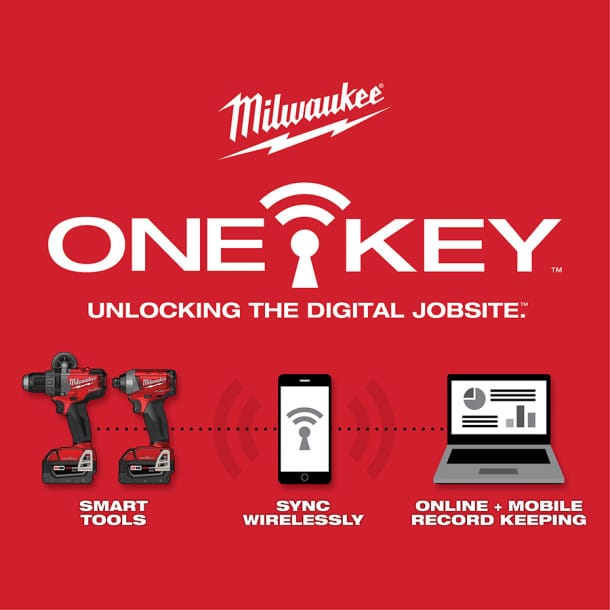
Have A Robust Storage Plan
Throwing all your tools in the back of the van is necessary as you go from point A to B, but always assume someone can get in there no matter what alarms you have. Today’s storage requires more thought, and some plumbers use heavy-duty tool vaults bolted directly to their vehicle frame, while others have started using mobile storage solutions similar to the gantry cranes and secure containers you might see on construction sites, especially plumbing businesses that run a fleet and need to pack trucks.
That way you don’t just protect tools but also organize them in a way that makes theft more difficult without making daily access frustrating. Even something as simple as using different storage locations for various tools, rather than keeping everything in one easily accessible place, can help reduce losses if someone does break in. It’s annoying we have to do this, but it does mean you don’t have to worry overnight.
Technology & Tracking
Luckily, if the thieves are using more tools to get into yours, you get to enjoy the benefits of tech too. GPS trackers have become smaller and more affordable, making them practical for protecting larger tools and equipment – an airtag in a toolbox might save you thousands if you know where it is or where it’s been taken to (though we can’t recommend following thieves of course, always care for your personal safety first).
In addition, some newer power tools even come with built-in tracking capabilities or can be disabled remotely if stolen. Security cameras in work vehicles aren’t uncommon anymore either – they’re small enough to be hard to notice while providing valuable evidence if theft occurs. Perhaps the police can be more motivated when given that kind of info. Even simple motion-activated lights and alarms can make a nice difference, especially when tools need to be left in a vehicle overnight. At the very least you’ll scare the thief.
Site Security Practices
It’s weird to think of such brazen acts, but many thefts happen right on the job site, often when workers are distracted or during breaks. Or, you know, working hard and not stealing other’s belongings!
This is where discipline works best. Don’t leave tools scattered around the work area, as keeping them organized and within sight helps prevent opportunistic theft. When working on larger projects, some plumbers coordinate with other tradies they trust to create secure storage areas using existing site provisions. Having a system for tracking tools throughout the day helps notice if something goes missing sooner rather than later too, like doing spot checks three times a day. And, of course, only work with people you can trust.
Insurance & Documentation
While insurance might not prevent theft at all, having the right coverage can make recovery much easier and less of an emotional and financial shock. Standard vehicle insurance often doesn’t cover tools stolen from a van, so specific equipment coverage is mostly required.
Keeping detailed records of your tools, including serial numbers and photographs that are updated every few months, can help both with insurance claims and recovery if stolen items show up at pawn shops or online marketplaces too – sometimes the police can track an item that way. Some plumbers even mark their tools with unique identifiers that make them easier to recognize if recovered, like a signature in permanent ink or just initials.
With this advice, we hope you can more easily avoid tool theft, hopefully never experiencing it on a personal level.
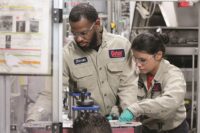
When it comes to looking after your business equipment, it’s important to do what you can to maintain and repair all of it. That way, you help save yourself some money as a business in the future. Keep your equipment clean To help ensure your equipment stands the test of time, it’s always good to Read more
When it comes to looking after your business equipment, it’s important to do what you can to maintain and repair all of it. That way, you help save yourself some money as a business in the future.
Keep your equipment clean
To help ensure your equipment stands the test of time, it’s always good to be proactive in keeping it clean. Ensuring proper cleaning schedules are in place will help keep the equipment in good condition, regardless of how much or how little it’s used.
Cleaning your equipment is certainly helpful and can make a big difference to how well it functions now and in the future. The more you keep up with this schedule, the better it is for your business fund too.
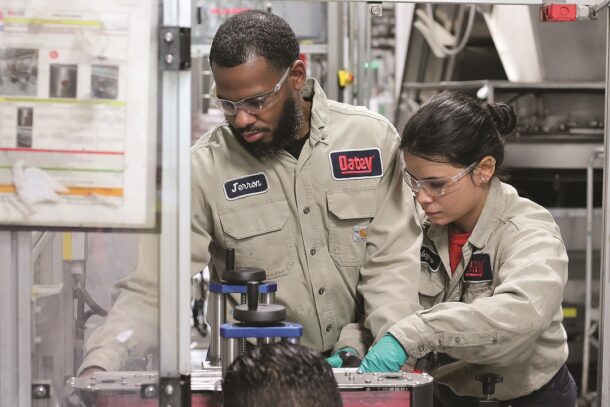
Maintain your machines with regular checks
Maintaining your machines with regular checks is certainly important to do and it’ll help in flagging up any potential problems with the machines themselves.
It’s better to spot a problem than to simply ignore it and hope it’ll go away. If you’re not keeping up with the maintenance on your machines, then that’s where problems will start to appear and it can end up being more costly as a result.
Have engineers out for small repairs and areas of concern
Engineers are great to have when it comes to carrying out small repairs. They’ll also be able to spot any underlying problems or areas of concern that might have flown under the radar for some time.
Even when you’re regularly checking the equipment yourself or having staff members do it, you can’t always guarantee that they’re going to be able to find a problem.
It’s always better to have the engineers come out to do checks and conduct regular maintenance to give it the all-clear. They’ll also be able to help with equipment that needs repairing, like pressure washer repair services for example.
Follow the instruction manuals to the letter
Instruction manuals are there for a reason. They come with the equipment whether that’s a small piece of equipment you can fit in your hand, to big machinery items that need training to get to grips with how to use it all.
Following these instruction manuals is helpful when you want to keep the machines and equipment in good condition, so don’t ignore them, otherwise, you might regret it.
Make sure you replace the equipment when required
Finally, make sure that you’re replacing any equipment and your electrical supply parts and components, too, as and when it’s needed. It’s important to do this because if you’re not replacing the equipment, then it could cause a hazard for you and your staff. It’s better to get rid of and replace it than run the risk of any further damage.
Be aware of what equipment was purchased and when so that you know roughly when you might need to get it replaced with something new.
These tips will hopefully help you to maintain your equipment and make repairs where necessary to keep efficiency throughout the business.

If you have always wanted to become a plumber then you may be wondering how to go about this. Plumbing is a wonderful career to get into as there will always be people with leaks or other issues that need to be fixed. However, it is not as simple as just going out into the Read more
If you have always wanted to become a plumber then you may be wondering how to go about this. Plumbing is a wonderful career to get into as there will always be people with leaks or other issues that need to be fixed. However, it is not as simple as just going out into the big wide world fixing peoples sinks and toilets. You will need to get the right level of education and experience if you want to create a successful plumbing business.
Get Educated
One of the first things you need to do if you want to run your own business is get educated. This means heading to college or taking an apprenticeship to get the right qualifications. When people are looking for a plumber to help them they will look at things like qualifications, paperwork, and experience. If you don’t have what they need then you may struggle to find work. It can sometimes be better to do an apprenticeship in plumbing and get into it that way, at least then you will gain valuable experience along the way.
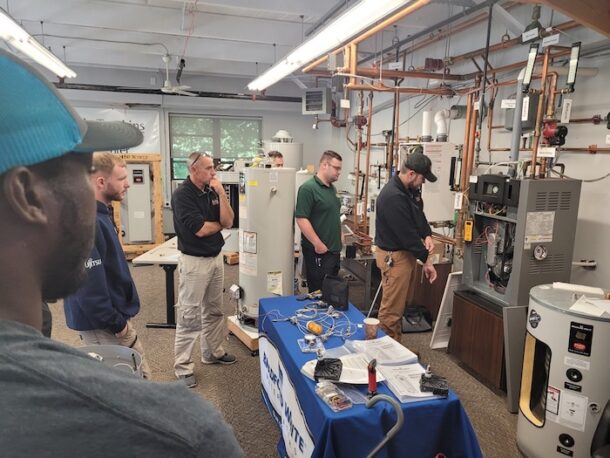
Licenses & Registration
Another thing you will need before you head off into the wide world of plumbing is the correct licenses and paperwork. You need to register to be a plumber and what you need will vary depending on your state. Make sure you know what you need at the last thing you want is to be missing something when you go to apply. Being registered means people will be able to find you easier and they can trust you have met all the minimum requirements.
Target Audience
Before becoming a plumber it can be useful to do some market research. This involves looking around your local areas to see if there is any need for plumbers. Great news, if there are that many around then you should get a great deal of customers and clients contacting you. You can find out whether there is any need for plumbers by sending out polls to potential customers. This can also be done on social media platforms, people can click yes or no depending on the questions you ask.
Funding
When you are about ready to open up your new plumbing business then you need to work out how much funding you need. This will provide you with everything you need, from tools to marketing, and everything in between. If you don’t have this money to hand then there are a couple of things you can do. You could apply for either a business loan or a credit card, as you won’t need high amounts like other businesses to get started.
Equipment
Finally, as a fully fledged plumber you will require the right tools and equipment. You will be dealing with many different nuts, bolts, and faucets during your work day. Kit yourself out with everything you need, you never know when you will need it. Brand new stuff can be expensive so don’t be afraid to buy second hand, used goods. As long as they are in full working order you can give them a new lease of life. When you are finished on jobs and you have taken pipes and other metals out then you could scrap it with scrap dealers near me.
We hope you found this article helpful and that it gave you some ideas, tips, and guidance on what you need to open and run a successful plumbing business.

In today’s world, cybercrime is an ever-present threat, but many people still think it’s only large corporations that are vulnerable. The truth is, cyber criminals increasingly prefer small businesses (SMBs), finding them to be much easier targets. Plumbing businesses, in particular, are at higher risk for cyberattacks due to a combination of factors. Outdated Websites Read more
In today’s world, cybercrime is an ever-present threat, but many people still think it’s only large corporations that are vulnerable. The truth is, cyber criminals increasingly prefer small businesses (SMBs), finding them to be much easier targets. Plumbing businesses, in particular, are at higher risk for cyberattacks due to a combination of factors.
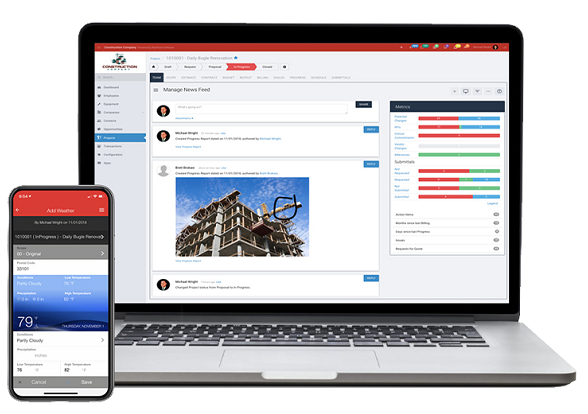
Outdated Websites
Many small plumbing businesses have websites that were built years ago and have not been updated since. While these sites may still look functional, they often have security flaws that make them vulnerable to attacks. Hackers look for these weaknesses and can easily exploit them, gaining access to customer data, business information, or even using the site as a gateway to launch broader attacks.
When websites aren’t regularly maintained, they can miss critical updates that patch security vulnerabilities.
For small plumbing businesses, it’s essential to keep websites up to date. Even if they aren’t regularly used for transactions, an outdated website can become a liability.
Unmanaged IT Systems
Plumbing businesses are busy, and running a company takes a lot of time and effort. As a result, managing an IT system often falls by the wayside. Many plumbing businesses either have no dedicated IT staff or are simply too busy to stay on top of software updates, security patches, and regular maintenance.
The problem with an unmanaged IT system is that it leaves vulnerabilities that cyber criminals can exploit.
One solution to this issue is outsourced IT. Managed IT services can take care of software updates, security checks, and ongoing monitoring, offering small business owners peace of mind while allowing them to focus on what they do best—running their plumbing business.
Working On the Go
The nature of plumbing work means that plumbers are always on the go, often carrying mobile devices like phones and tablets to handle their day-to-day operations. These devices are crucial tools for managing business on the move, from sending invoices in real-time to handling customer queries and scheduling appointments. However, this reliance on mobile technology also introduces significant cybersecurity risks.
Mobile devices can become an easy entry point for cyber criminals when not properly secured. One common mistake is using unsecured Wi-Fi networks in public places like cafes or clients’ homes. Hackers can easily intercept data sent over unprotected networks, gaining access to sensitive business information such as customer details, payment information, or internal communications.
Another vulnerability occurs when devices are left unattended. It’s not uncommon for a plumber to leave their phone or tablet in a work truck or even lying around on a job site.
The solution here is twofold: plumbers need to be cautious when connecting to public Wi-Fi, and they should invest in proper security measures for their mobile devices. Strong passwords, biometric locks, and using a virtual private network (VPN) when on public Wi-Fi can significantly reduce the risk of cyberattacks on mobile devices.
Small plumbing businesses are prime targets for cyber criminals due to a combination of outdated websites, unmanaged IT systems, and the use of mobile devices on the go. While large corporations often have dedicated cybersecurity teams, many small businesses lack the resources or time to protect themselves adequately. However, by staying on top of website updates, considering outsourced IT services, and securing mobile devices, plumbing businesses can safeguard their operations and reduce the risk of falling victim to cybercrime. In today’s digital age, cybersecurity is not a luxury but a necessity for businesses of all sizes.
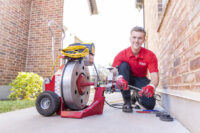
As the old saying goes, prevention is better than cure. This is especially true in the world of plumbing. Plumbing issues can quickly translate to costly repairs and unimaginable disruptions if you don’t prevent or address them promptly. Here are some tips to help homeowners prevent common plumbing problems before they happen. Safeguard Pipes from Read more
As the old saying goes, prevention is better than cure. This is especially true in the world of plumbing. Plumbing issues can quickly translate to costly repairs and unimaginable disruptions if you don’t prevent or address them promptly. Here are some tips to help homeowners prevent common plumbing problems before they happen.
Safeguard Pipes from Freezing
After installing a plumbing system, you expect it to function optimally in all seasons. However, that’s not always the case in winter, as frigid temperatures cause the water in pipes to freeze. Sometimes, the frozen pipes burst, leading to costly plumbing damage.
Fortunately, you can avoid this by insulating the pipes. Pay more attention to those in unheated areas, like garages, attics, basement, and crawl spaces. You can use heating tape or pipe insulation sleeves to shield them from the dropping temperatures. Other options include sealing any air leaks, allowing your faucets to drip a little bit, and using a thermostat to maintain a consistent temperature.
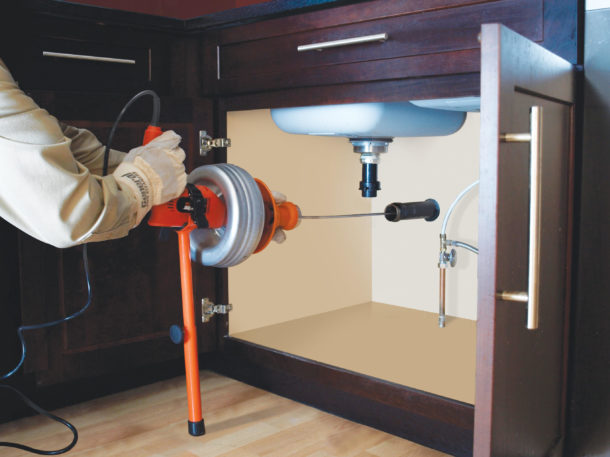
Keep Drains Clear
A clogged drain and pipe is a common and avoidable plumbing problem. Hair and other debris can ball up into huge clogs in drains, restricting water flow. You can avoid this by simply cleaning your drains daily.
Grease and cooking oils are other culprits for drain clogs. Cooking oil can solidify in your drain pipes, causing blockage while grease attaches to pipes like glue, coating their inside to make them bumpy and sticky.
These bumps capture food particles, slowly reducing the pipe’s diameter. This eventually leads to slowed water pressure and flow. Find better ways to dispose of cooking oil and grease, like transferring them to another container and putting in the trash instead of pouring them down your drain.
Monitor Water Pressure
Extremely high water pressure can excessively strain your plumbing system, resulting in leaks and costly bursts. Consider using a water pressure gauge to keep an eye on your home’s water pressure. Experts recommend a water pressure of about 40 to 60 psi for a home. If yours exceeds these, install a pressure regulator to maintain a safe range.
Pay More Attention to What You Flush
Toilet drains are specifically established to handle toilet paper and human waste. Flushing items, like wet wipes, paper towels, cotton balls, and sanitary products, can be a recipe for blockage.
Even those labeled as flushable, especially wipes, can clog your drains and even the septic tank. A septic tank clog can facilitate the growth of bacteria that can ruin the septic tank itself and its pipes. So, always dispose of such items in the trash rather than flushing them.
Carefully Use Plumbing Cleaners
Avoid overusing DIY plumbing cleaners, as they can wear down your plumbing system’s walls over time. While they do a better job of clearing any unwanted materials from your plumbing system, most of them start to work on the inner lining of the systems themselves if they do not find any dirt or debris to remove.
Make Plans for Regular Plumbing Inspections
Let a professional plumber perform regular plumbing checks to highlight plumbing issues before they become unmanageable. Your routine inspection can include checking for visible signs of wear and tear, corrosion, leaks, and cracks. Your plumber can also inspect the pipes, appliances, and fixtures to ensure they are in good condition and functioning properly.
Plumbing problems cost homeowners a lot of money, yet they are preventable. Consider implementing these proactive steps discussed above and embracing regular maintenance to keep your plumbing system in perfect shape.
